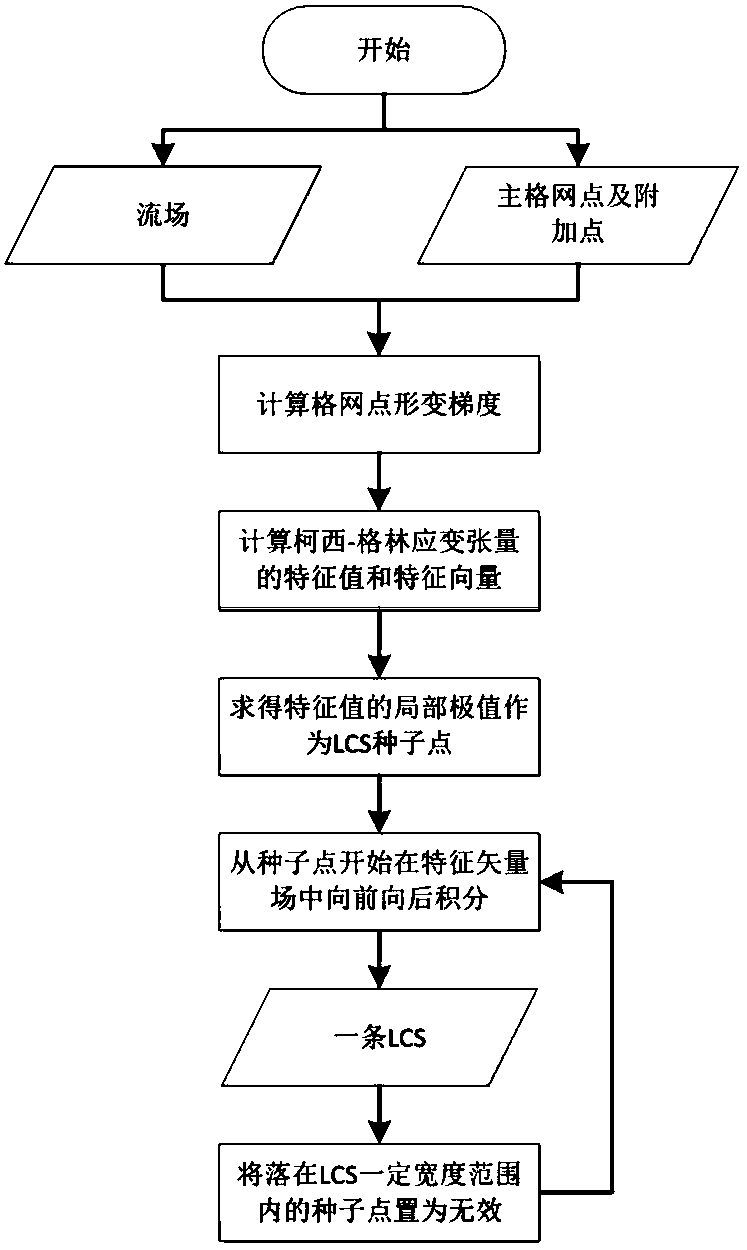An Algorithm for Analyzing Lagrangian Quasi-order Structure of 2D Ocean Current
A technology for structural analysis and ocean currents, applied in the field of flow field topology, can solve the problem of lack of strict proof of validity, and achieve the effect of clear location
- Summary
- Abstract
- Description
- Claims
- Application Information
AI Technical Summary
Problems solved by technology
Method used
Image
Examples
Embodiment Construction
[0013] The invention evenly distributes dense grid points in the flow field, and calculates the Cauchy-Green right strain tensor of the movement for a period of time. Based on the local extrema of the tensor's eigenvalues and the eigenvector field, the LCS is integrated (such as figure 1 shown). Include the following steps:
[0014] 1. Calculate the Cauchy-Green right strain tensor of each grid point;
[0015] Firstly, a uniform and dense main grid point is generated in the flow field. In order to improve the calculation accuracy, an additional point is generated at the top, bottom, left, and right sides of each grid point. The spacing between the additional points and the grid points should be much smaller than the spacing between the grid points. All additional points move with the flow field for a period of time. The velocity field is interpolated in the three-dimensional space of longitude, latitude and time, considering the accuracy and speed comprehensively, adopti...
PUM
 Login to View More
Login to View More Abstract
Description
Claims
Application Information
 Login to View More
Login to View More - R&D
- Intellectual Property
- Life Sciences
- Materials
- Tech Scout
- Unparalleled Data Quality
- Higher Quality Content
- 60% Fewer Hallucinations
Browse by: Latest US Patents, China's latest patents, Technical Efficacy Thesaurus, Application Domain, Technology Topic, Popular Technical Reports.
© 2025 PatSnap. All rights reserved.Legal|Privacy policy|Modern Slavery Act Transparency Statement|Sitemap|About US| Contact US: help@patsnap.com

